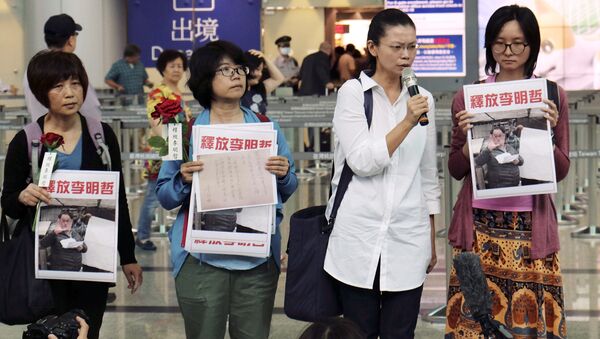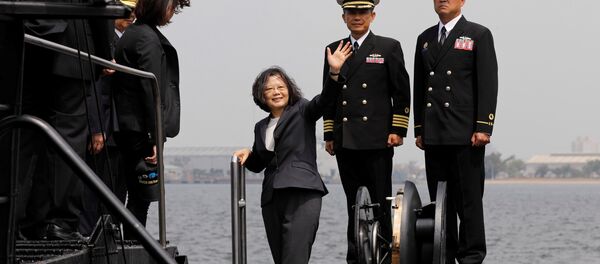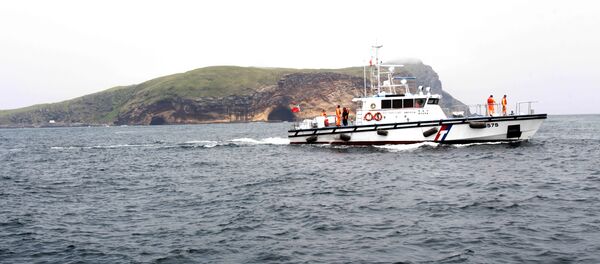Li entered mainland China from the Special Administrative Region of Macau on March 19 and immediately vanished. Beijing admitted in April that he had been arrested as soon as he entered the country. If Li is charged with the crime he is accused of, subversion of state power, he will hold the dubious distinction of being the first Taiwanese person charged with such an act.
If he is charged and found guilty, he could face life in prison.
An Fengshan, a spokesman for China's Taiwan Affairs Office, said that Li had been making frequent visits to the mainland since 2012. During these visits, he worked to set up anti-government organizations and carry out seditious activities.
"Li and others have confessed that they had engaged in activities endangering national security," An added. The 42-year-old activist "colluded with relevant people in the mainland, formulated action programs, established illegal organizations and plotted and enacted activities to subvert the power of our authorities."
"After being interrogated, Li Ming-che confessed to engaging in activities to harm our state security, and the judicial authorities will handle the case in accordance with the law."
The office's counterpart across the strait, Taiwan's Mainland Affairs Council (MAC), replied that Beijing had no concrete evidence of their claims. "Such allegations not only fail to convince the Taiwanese public, but also international groups concerned about the case," they said in a statement. They also urged the mainland to release their evidence to the press and to allow Li's relatives to visit him.
"This cannot convince the people of Taiwan," they said. "We do not agree with any of the alleged charges China has against Li Ming-che."
Li's wife, Ching-yu, said that she and her husband traveled to the mainland once a year or so, but denied any sort of subversive activity. She contacted the Taiwanese government as well as international human rights groups to try to secure her husband's release, but without success.
The case has proved an unusual one: strained as the relationship between the two Chinas is, it is uncommon for Beijing to arrest Taiwanese activists and charge them with subversion. "Usually charges like that are meant for Taiwanese arrested for alleged espionage, or mainland dissidents protesting against mainland authorities over human rights abuses," Wang Kung-yi, a professor of international relations and strategic studies at Tamkang University in Taipei, told the South China Morning Post.
During a talk show that aired on Phoenix TV, a private broadcaster that airs in China, commentator Song Zhongping said that there was nothing unusual about the case at all. "It does not matter which country, region, or political party he is from. If he violated the law and he should be punished, he will be punished," he said. "In any country, such cases would be dealt in this way. It's not the specifically targeting him or the DPP or the Taiwan authorities."
Taiwanese President Tsai Ing-wen has called on Beijing to release Li, calling the arrest inflammatory and hostile. Tsai, a member of the liberal Democratic Progressive Party (DPP), has refused to publicly acknowledge that China and Taiwan are one nation, and instead that the Taiwan is its own independent state that is unlikely to ever rejoin the mainland. Beijing refuses to negotiate with Taiwan so long as that is the government's official stance. Li is a former DPP official.
On their end, Taiwan arrested a Chinese university student in March and accused him of espionage. Also in March, the Taiwanese coast guard shot at Chinese fishermen with rubber bullets and then arrested them for allegedly entering Taiwanese waters. Taiwan and China have frequent low level disputes over fishing grounds.





